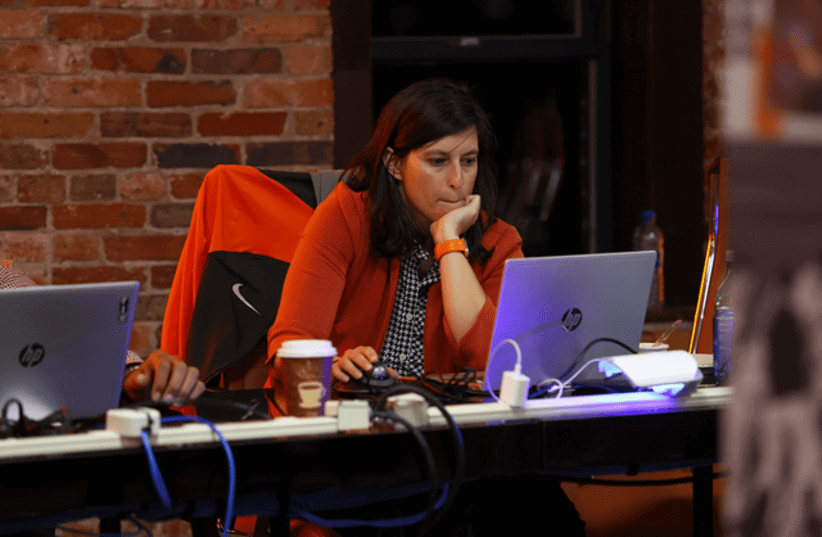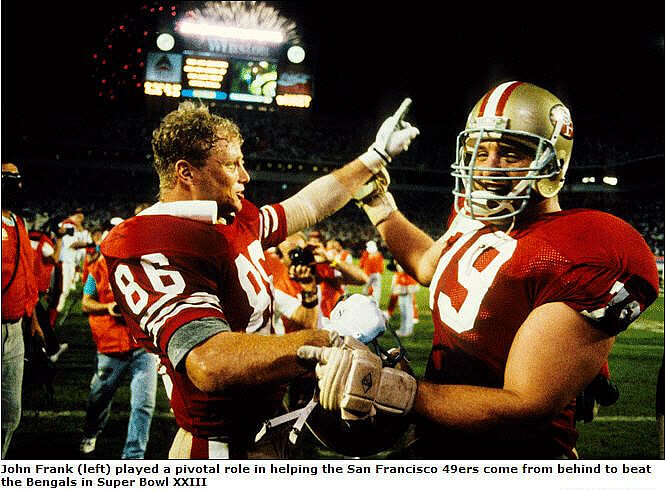Original article was published on The Jerusalem Post
Eve Rosenbaum’s lifelong passion for baseball propelled her from Orioles fan to assistant GM, breaking barriers and driving the team’s resurgence.
Eve Rosenbaum, assistant general manager for Major League Baseball’s Baltimore Orioles, playfully traces her love for baseball and the Orioles to the first Orioles game she attended with her parents, twin brother, and older brother at just two months of age.
The family regularly made the 37-mile (60 km) trek from their home in the Washington, DC suburb of Bethesda, MD, first to Memorial Stadium, the Orioles’ old home, and then to Oriole Park at Camden Yards to see their beloved team play.
“We went to 60 games a year growing up,” Rosenbaum told The Jerusalem Post. “Baseball has always been in my blood!”
In 34 short years, Rosenbaum has progressed from fan to player on a boys’ Little League baseball team while in kindergarten, to catcher on her Walt Whitman High School team, and then to the Harvard University women’s softball team. Her journey continued with internships with Major League Baseball and the Boston Red Sox. Rosenbaum then veered slightly “off course” for a two-and-a-half-year stint with the National Football League before returning to jobs with her first love – baseball.
She worked for five years in the Houston Astros organization in various roles, including manager of international scouting, before returning to her childhood favorite team, the Orioles, in 2019. Rosenbaum initially served as director of baseball development and has been the assistant general manager for the past two years.

As assistant GM, Rosenbaum notes that “there is no such thing as a typical day.” Her main focus is on day-to-day operations, which requires a great deal of planning and anticipation.
“I am constantly thinking of the team and the roster and what we will need, trying to think ahead.” Rosenbaum focuses on trades and transactions, on players being brought up from AAA [farm teams] or sent down to the minors. She stays in touch with coaches, trainers, and strength staff about players on the IL [injured list], monitors their rehabilitation, maps out their return, and juggles the overall 40-man roster. Rosenbaum also oversees international scouting, i.e. lots of travel.
Rosenbaum acknowledges that “the season is long, and it takes a lot of commitment and time – especially during these long summers when you have the draft in the middle of July, trade deadlines, and the normal day-to-day and roster considerations, players on the IL, rehab, and the playoffs!”
She admits that she “could use more sleep” and that “it is really a nonstop grind during baseball season,” but she loves her work, which often comes with perks.
On the day of our Zoom interview from her office at Camden Yards, Rosenbaum’s “to-do list” included bringing tickets to that evening’s Orioles/Washington Nationals game to the will-call window for family and friends from her years growing up in the DC area. Other perks of the job include interacting with two of her favorite Orioles players from her childhood.
“Cal Ripken and Eddie Murray are still revered here. Now I get to work with them sometimes at spring training and see them around the ballpark – that is surreal!”
In addition to Ripken and Murray, Rosenbaum credits Kim Ng, the first female GM in Major League Baseball, as a role model. Rosenbaum, who is the fourth woman to serve as an assistant GM in the major leagues, interned for Ng while in college. Ng served as GM of the Miami Marlins from 2020-2023.
“For any woman working in sports, she helped pave the way and will always be someone I look up to.”
Rosenbaum also credits her parents for all they have done over the years.
“It takes a lot to raise twins. I think a lot of my success can be attributed to my parents. They always believed in me and pushed me forward. Whatever I wanted to do, they were very supportive. They always told me that I knew how to throw a ball before I knew how to walk!”
While there are more men than women in senior leadership positions in Major League Baseball, Rosenbaum has observed a culture change.
“There are more and more women in baseball operations, whether it is serving as AGMs, VPs, directors, analysts, strength coaches, etc. [These days] you can enter the game not necessarily with a playing background, but with more of an analytical background, or by studying statistics or computer science, or being an athletic trainer or strength coach, or through working with a minor league team and slowly working your way through the ranks. You can do that if you are a man or a woman! There are definitely more women working in baseball.”
In addition to noticing more women in baseball, Rosenbaum reports that there are “a fair number of Jews in the front offices” of baseball teams.
“We don’t ask, but we just know it!”
She has encountered other Jews at baseball’s winter meetings, where they sometimes light Hanukkah candles together in the lobby.
“There’s quite a lot of us. We don’t necessarily explicitly acknowledge each other, but we know everyone’s last name.”
Rosenbaum also knows many of the current Jewish major leaguers, including Israeli Orioles pitcher Dean Kremer. She noted that she respects his role as a player and tries to keep a professional distance.
Rosenbaum spontaneously offers, “I don’t know what it is about the unique bond between Jews and baseball, but it doesn’t seem to exist in other major sports. I don’t know why that is. I have to study the history of it. But it is kind of just there – a proud tradition.”
Rosenbaum’s early life
Rosenbaum attended Hebrew school “like pretty much everyone else” and celebrated her bat mitzvah with her twin brother at age 13. Even the bat mitzvah party reflected her lifelong love of baseball.
“The theme for my half was baseball. We had a giant baseball cake, which every now and then I come across a photo of. It was a giant 3-D baseball! I am sure my parents still have a piece of it somewhere in their freezer.”
While Rosenbaum describes herself as not “particularly observant,” she is still in touch with many of her childhood friends.
“There is a large Jewish population in Potomac and Bethesda where I grew up. My old friends get together now and then on Jewish holidays and do things like play dreidel. We have our favorite bakery that makes the best challah here in Rockville – it is called Great Harvest.”
Rosenbaum has visited Israel twice.“We took a family trip when I was 3 or 4. I was very young, so I have no memory.”
In contrast, Rosenbaum remembers many details of her later-in-life Birthright Israel trip.
“Most of my friends went in college. Due to playing softball, I wasn’t able to go then. I went at 26 – right before you max out. I went with one of my best friends growing up. It was a lot of fun.”
Rosenbaum was taken by the history she experienced and by how much the group got to do over the course of the 10-day trip.
“It still amazes me how small the country is and how you can traverse it on a bus basically in a single day and be in all of these different environments.”
She recounted experiencing “bonfires in the desert, then hiking up a mountain where it is very hot, then going to the Dead Sea and eating ice cream while floating, and doing just a lot of fun things that you hear about… and also going to the Western Wall and Yad Vashem and meeting the soldiers and going to the museums and learning the history that I never learned about was really fascinating. It was a lot of fun. It was an incredible experience.”
Rosenbaum feels there is something very special about being Jewish.
“Something that has always stood out to me about Judaism is that it is always very accepting of people. It is not about what you can’t do – it is very accepting and welcoming of people. That is a nice aspect of it. It is a culture, a lifestyle, a way of life.”
In addition to her reputation as a young, up-and-coming mover and shaker in MLB, Rosenbaum is known for seeking out cold brew coffee both at home and on the road.
“It is very caffeinated and delicious and tastes like a milkshake.”
The cold brews should prove helpful as the Orioles enter the final stretch of the season. The Orioles were the first team in Major League Baseball to win 70 games and are in a very tight AL East pennant race with the New York Yankees with 29 games to go. Thanks to the efforts of Rosenbaum and Orioles management, the Orioles are on track to potentially win their first World Series since 1983.



